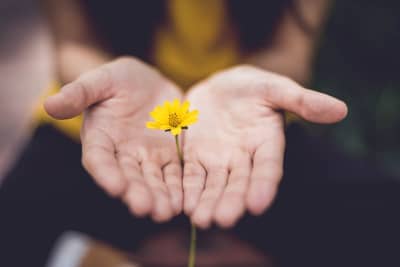That which does not kill us makes us stronger, goes the old adage. Actually, it was the German philosopher Friedrich Nietzsche who said it.
Huh. I prefer the one which goes, "That which does not kill you gives you a lot of unhealthy coping mechanisms and a really dark sense of humour." I think a lot of us can relate to that one.
Besides which, the first does not seem to be true. That which does not actually kill us, may leave us weaker, not stronger. Death by a thousand cuts is still a death. People who have defeated cancer more than once will tell you the second time is harder. Survivors of torture know that the second and subsequent beatings are more difficult to endure because you know the pain that is to come.
So how can we be stronger for a traumatic event? How can going through the darkness of depression make us stronger? How can we be stronger after surviving, say, a suicide attempt?
Apparently, studies have shown that some trauma survivors report positive changes and enhanced personal development, called post traumatic growth (PTG). PTG refers to any beneficial change resulting from a major life crisis or traumatic event, but people most commonly experience a positive shift by having a renewed appreciation for life; adopting a new world view with new possibilities for themselves; feeling more personal strength; feeling more satisfied spiritually, and/or their relationships improve.
Hmmm, do you hear that? Yes – that's the sound of my deep scepticism...
But maybe I need to rethink.
Because I know that I am stronger, more resilient, more compassionate and less judgemental as a result of my times of darkness. My relationships are rich and loving (mostly) because I am more accepting of how people actually are, instead of trying to make them into my idea of what they should be. And that's because I have to accept myself as I am.
I accept my condition. I have bi-polar; it's as simple as that. If I try to deny it, or hide it or fight against it, I sentence myself to more trauma.
Accepting isn't the same as condoning or approving. To accept means to stop resisting or struggling against what is because to do so causes pain and suffering. Acceptance means to surrender to the moment as it is. Not to give up.
So no, I'm not giving up. I accept that I will probably go down into the pit again and yet again, but I'm keeping my eye open all the time for new medicines and new practices that might reduce the depth of the pit or enable me to avoid it. Because yes, I'd love to be well. I'd love to be delivered from this condition.
And I'd love to know how easy you find this acceptance, and if you feel you are stronger for having depression.
Mary
A Moodscope member
NB – parts of this post have been taken from a blog post by Debbie Hampton in The Best Brain Possible.


Comments
You need to be Logged In and a Moodscope Subscriber to Comment and Read Comments